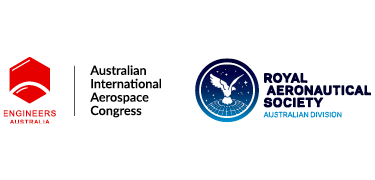Theme and Sub-themes
The theme for AIAC20 2023, Leading technologies and research for the future of Aerospace, covers a range of topics relevant to practising aerospace engineers, students, academics, researchers, and industry specialist providers.
AIAC20 will incorporate three major conferences focussing on aeronautics, health and usage monitoring and space engineering. Delegates attending AIAC20 are able to participate in all three incorporated conferences.
20th Australian Aeronautical Conference (AAC)
The Australian Aeronautics Conference (AAC) brings together aeronautical professionals and students from across the region and internationally to network and hear from leaders in the field. The AAC is the founding conference under the AIAC banner, held biannually, in Melbourne, to align with the Avalon International Air Show. The conference runs for three days, two in Melbourne and one day at Avalon including a morning technical session and a self-guided afternoon at the Avalon Airshow where delegates can capitalise on exhibitors, and static and flying displays. AAC attendees span government, industry and academia and participate in a high-quality technical program coupled with excellent networking and learning opportunities.
Major AAC themes include:
- Aerodynamics
- Structures and materials
- New technologies
- Autonomous systems/UAS
- Operations, airworthiness and sustainment
- Vehicle systems (incl. avionics and propulsion)
- Industry capabilities and advances
13th International Conferences on Health and Usage Monitoring (HUMS)
The DSTG series of HUMS conferences commenced in 1999 at Fishermans Bend, Melbourne, Australia, and is an established biennial international event featuring health and usage monitoring and management for aircraft and land and marine vehicles. The conference brings together industry, academia, Defence and user communities to discuss the latest developments, research and applications.
Increasingly, platform health, at the sub-system, system or fleet level, is being managed using diagnostic, and prognostic or predictive maintenance approaches. All these practices rely on health management systems providing data and information for decision support, mission assurance, availability, and safety of critical and high-value assets.
Major HUMS themes include:
- Diagnostics and prognostics
- Data science and analytics applications
- Health and life management
- Platform asset management
- Predictive maintenance
- Sensors and algorithms
- Structural loads monitoring
- Vibration, RT&B or acoustic analysis
- Wear debris analysis
- HUMS2023 Data Challenge
HUMS2023 Chair: Joanna Kappas (DSTG)
17th National Space Engineering Symposium (NSES)
The space sector in Australia is undergoing tremendous growth and space engineering lies at the heart of delivering this growth. Australia’s ambitions include the design and manufacture of small to medium-sized satellites and launch vehicles, the construction and operation of launch infrastructure, and advanced earth observation instrumentation. Space engineering is highly multidisciplinary, encompassing communications technologies, advanced materials and structures, manufacturing, data and cyber analytics, power management and electrical/electronic system design, among others. The NSES provides the opportunity to share and hear about the latest developments in these areas and others relating to space engineering.
NSES has the full support and patronage of Engineers Australia’s National Committee on Space Engineering (NCSpE). Papers from Australian and international researchers based on the themes are invited to make the 12th NSES a success.
Papers must be submitted by 1 November 2022 to the AIAC20 secretariat.
Major NSES themes include:
- Spacecraft systems design and analysis
- Spacecraft dynamics and control
- Orbit theory
- Mission and trajectory design
- Space environment
- Launch vehicle design and methods
- Australian space business opportunities
